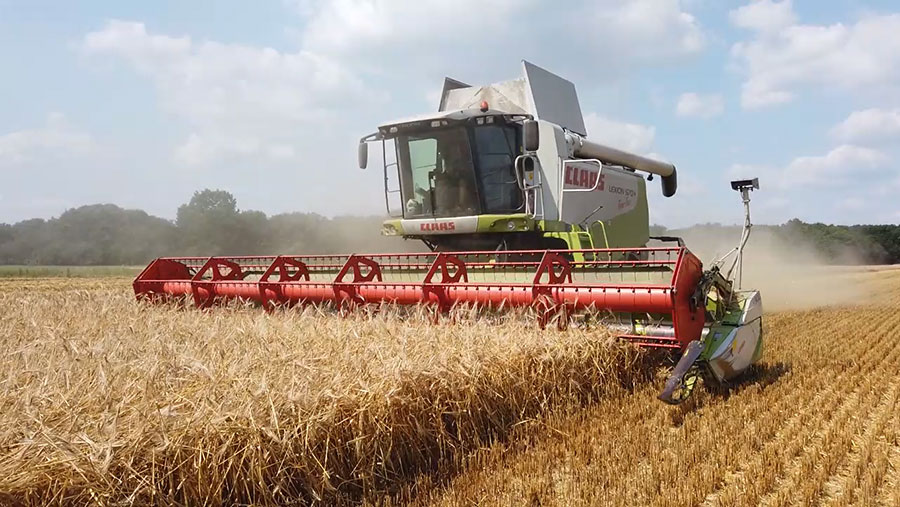Video: Late start to winter barley harvest after freak storm
 © MAG/Emma Gillbard
© MAG/Emma Gillbard Winter barley harvest began 20 days later than usual for Berkshire grower Colin Rayner, after 50mm of rain was dumped on the farm, pushing back the start date as soil moisture levels rose rapidly.
“The farm was just so wet, as we caught the same storm that had caused massive floods in London and Europe. We had over 2in [50mm] of rain, which is totally unusual for us, as we are normally one of the driest farms in England,” he said.
In fact, the combine got stuck on two separate occasions at Berkyn Manor Farm, where the family have farmed since 1541, as the rain left soils saturated.
See also: Better-than-expected winter barley harvest for Notts grower
Yield and quality
Thankfully, after a long and patient wait, soils dried out in last week’s heatwave, with crops coming off at 11-12% moisture and averaging 8t/ha. Mr Rayner is pleased with how harvest is going, with good grain samples taken.
He said yields were not where he would have liked them to be, especially with the later-than-usual harvest date. The crop achieved “disappointing bushel weights”, and he believed this was where yield was lost.
Due to the scorching 30C temperatures, grain was coming off extremely hot, so the dryer was used to cool it, before selling direct for £145-£146/t. Straw was baled and sold to local livestock farms.
BYDV resistance
After concerns about another wet winter, Mr Rayner decided to grow the six-row variety Sensation this season for its barley yellow dwarf virus and barley yellow mosaic virus type 1 and type 2 protection.
“Growing this variety eliminates the need for us to apply an autumn insecticide spray, which is better for the environment, and also reduces compaction risks in poor travelling conditions,” he said.
With harvest of the 41ha of winter barley now complete, the land will be spread with farmyard manure before planting to maize.
Usually, this would be planted to oilseed rape, but after 43 years of growing the crop, Mr Rayner has chosen not to risk drilling it this year after severe cabbage stem flea beetle attacks.
He said he was looking forward to the winter wheat harvest, which he suspected would commence three weeks late, but this could bring challenges as harvesting into September means shorter days and longer nights.

